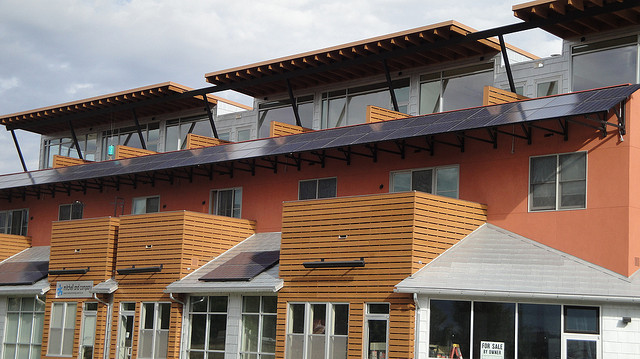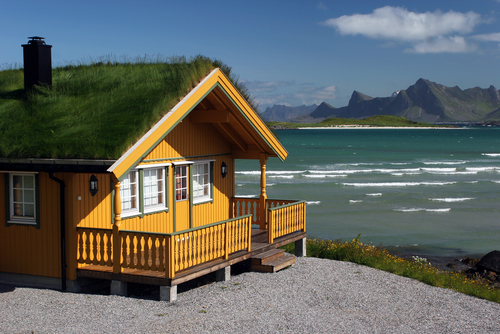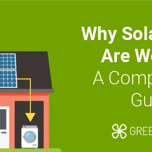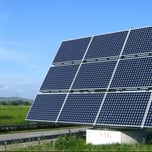Answer these simple questions and we will find you the BEST prices
Which type of solar quotes do you need?
It only takes 30 seconds
100% free with no obligation

Get up to 4 quotes by filling in only 1 quick form

Slash your energy bills by installing solar panels

For the average 2-3 bedroom house
- GreenMatch
- Blog
- 10 Things You Need to Know Before Buying Solar Panels in the UK
A Guide to Buying Solar Panels: March 2025 Guide

Are you tired of high energy bills and want to do your part for the environment? Installing solar panels in your home could be the perfect solution. But before you make any decisions, it's crucial to understand what you're getting into. To help you make an informed decision, we've put together an article outlining 10 things you need to know before buying solar panels in the UK.
Ready to get solar panels but don't know where to start? Smart homeowners know that the first step to finding a good deal on a new solar panel system is to compare multiple solar quotes from different installers.
Luckily, GreenMatch's free quote service connects you with up to 3 different local installers who will offer their most competitive quote. From there, you're free to choose a deal if one suits your budget.
- Quotes from local engineers
- Payment by finance available
- Save up to £1,020 per year
It only takes 30 seconds



1. How Do Solar Panels Work?
Solar panels are made up of cells, which convert light energy into electricity. This is in stark contrast to older solar panels, which needed direct sunlight and heat to function. Solar panels today can produce electricity on cloudy days and during the winter season, although solar panels are of course more efficient on sunny days.
Solar panels enable us to exploit the largest available energy source: the sun. The sun’s rays give off around 1.000 watts of solar energy per square meter of Earth’s surface on a good sunny day, so there really is a huge future potential for this clean energy source.
2. Is My Home Suitable?
To optimise the efficiency of your future solar panels, you need to ensure that your home is as energy efficient as possible. You should therefore consider how well your home is insulated, including the possibility of investing in double glazing or cavity wall insulation.
Additionally, to maximise the performance of your solar panels your roof should be south-facing at an angle of approximately 30 degrees. However, solar panels are still worth considering if you have a flat roof or if your roof is facing another direction.
3. How Much Do Solar Panels Cost?
The cost of solar panels are generally decreasing and today you can expect solar cells to set you back between approx. £2,500 - £10,500. It may seem a steep price to pay, but there are many benefits (see below) which enable your solar panels to pay for themselves.
4. Savings
Despite the high expenses of installing a solar panel system, the savings on utility bills make up for it. Annual savings on energy bills for the average household are estimated between £450 and £1,020 per year.
There are further savings to be gained from or Smart Export Guarantee (see below). Experts estimate total savings, including benefits from government schemes, to be between £530 and £1,120 per year for an average three-bed property.
5. Smart Export Guarantee
The Smart Export Guarantee (SEG) is a new scheme that pays you for any surplus energy which is fed back to the national grid.
Maximising your savings from a government scheme all starts with getting the best deal possible on your new solar panel system. The key to doing this is to collect multiple quotes and compare them. You not only get to choose the best deal, but you'll know if you're being overcharged.
The easiest way to go about this without having to do hours and hours of research looking for installers is through GreenMatch. GreenMatch's free and no-obligation quote service provides you with up to 3 different quotes from reliable solar installers in your area. All you need to do is click the button below and fill out our 30-second contact form.
- Quotes from local engineers
- Payment by finance available
- Save up to £1,020 per year
It only takes 30 seconds



6. Free Installation: What’s the Catch?
There are many companies offering to install solar panels for free. You will get all the benefits of solar panels: free electricity and drastically lower utility bills. But is it too good to be true?
Here’s the catch: any income produced from electricity generated by the solar panel system and exported to the national grid will go directly into the company’s pockets. As the company owns the solar panels, they will benefit from the government schemes.
Most companies, unfortunately, don’t give you the option of buying the panels from them after a certain period and there is often a 25 year commitment contract with the free solar panels installation. This is an important factor to consider if you are thinking about selling your property in the near future.
7. Add Value to Your Home
New research has shown that investing in solar panels can add value to your home. By adding solar panels to your home, you are improving your property’s EPC rating (Energy Performance Certificate). An EPC is needed whenever a property is bought, sold or rented - therefore a good EPC rating can only be to your advantage. Your property is even more attractive to prospective buyers if you have the Feed-In Tariff.

8. Need to Know Jargon
It’s a good idea to become familiar with some of the terms and jargon associated with solar panels. Here’s a quick list of the most common terms:
-
Solar Photovoltaic (PV): using solar energy for generating electricity.
-
Solar Thermal (ST): using solar energy for heating purposes.
-
Photovoltaic (PV) cells: thin layers of semiconducting material, which is usually made from silicon. When the silicon is exposed to light, electrical charges are generated. Multiple cells connect together to form a panel and a set of connecting panels is a system.
-
Active Solar: when you use a device or collector to capture the sun’s energy to convert it to electricity or heating purposes.
-
Passive Solar: capturing and utilizing the sun’s energy without a device or collector, for example, large south-facing windows.
-
Monocrystalline Silicon Cells: this is the most efficient (and most expensive) PV cell.
-
Multicrystalline Silicon Cells: this is a slightly less efficient (and slightly cheaper) PV cell.
- Amorphous: this is another type of solar photovoltaic cell, which is not made from expensive crystalline silicon. The silicon is actually much thinner than that of multicrystalline cells, which means it is much cheaper.
9. Energy Saving Ideas
If you aren’t quite ready to take the plunge and buy solar panels, here are a few ideas to be more energy efficient at home:
-
Turning your thermostat down by one degree can save you around £65 per year
-
Close your curtains in the evenings and tuck them in behind the radiator or around the window sill to minimise drafts
-
Energy saving light bulbs can save you around £60 per year
-
Wash your clothes at 30 degrees
-
Put your central heating and radiators on timer so you don’t waste energy and money heating an empty house
10. Other Green Energy Sources
If your home isn’t suited to solar panels or if you are not sold by the idea there are still a range of other effective green energy technology available to power your home. Heat pumps can be a great alternative to solar panels and Passivhaus buildings are also rising in popularity.
Now that you have a better idea of what to expect when purchasing solar panels, it's time to take the next step and get tailored quotes from professional installers in your area. At GreenMatch, we can help you find the best solar panel deals for your home by providing up to 3 specialised quotes from installers near you.
With our help, you can compare prices and installation costs to find the right solar panel system that fits your budget and energy needs. This service is completely free and comes without any obligations.
- Quotes from local engineers
- Payment by finance available
- Save up to £1,020 per year
It only takes 30 seconds



We strive to connect our customers with the right product and supplier. Would you like to be part of GreenMatch?





